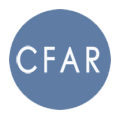CFAR Code of Ethics
All CFAR members and trainees who are registrants of UKCP, in addition to the CFAR Code of Ethics, you are also required to commit to uphold all sections of the UKCP Ethical Principles and Code of Professional Conduct (hereinafter ‘EPCPC’). Those relevant sections to which you should refer are contained in parentheses below and can be found online (here).
Preamble
The purpose of this code is to protect clients from professional malpractice and/or negligence. It does not presume to specify the theoretical status of ethics within psychoanalysis.
Articles
Article 1: A member* shall at all times seek to establish and maintain the highest professional and ethical standard in the conduct of his or her work.
Article 2: A member shall at all times act within the range of his or her established competence and current ability and shall not make false claims in this regard. (EPCPC: 5.4, 5.5, 5.7).
Article 3: Members are required to disclose their qualifications when requested and should not claim, or imply qualifications that they do not have (EPCPC: 5.1, 5.2).
Article 4:
- Members agree to disclose, on request, their terms and conditions and, where appropriate, methods of practice at the outset of psychotherapy.
- Members undertaking research (other than traditional analytical case studies) should ensure that, prior to the beginning of therapy, research participants (or in some cases their representatives) have been fully informed before giving written consent to any research to be undertaken and, in cases where public observation is concerned, that due account has been taken of local cultural values and individual rights of privacy.
- Members publishing traditional analytical case studies need to adequately anonymise the case material.
Article 5: A member agrees not to compromise a client’s identity by any breach of confidentiality. In those cases where there are overriding legal or other concerns pertaining to the well-being of a client, a member shall consult a senior colleague before confidentiality is breached and the client informed of such an intervention. Should the client then submit a complaint to CFAR, the member should be prepared to show sufficient cause for breach of confidentiality, and that such breach has been undertaken with due regard to a client’s rights, including those of privacy and self- determination.
Article 6: A member (or trainee) shall not exploit or abuse the contractual and personal relationship with his or her client to obtain untoward personal or material advantage (EPCPC: section 1, Best interests of clients).
Article 7: A member shall not, for any purpose, allow their professional responsibilities or standards of practice to be altered by considerations of religion, sex, race, age, nationality, party politics, social standing or other extraneous factors (EPCPC: 2.1, 2.2, 2.3).
Article 8: A member shall refrain from making any unwarranted claims regarding the efficacy of their technique and/or personal capacities either personally and/or in any publicity pertaining to their professional practice.
Article 9: Members are required to ensure that their professional work is adequately covered by appropriate indemnity insurance.
Article 10: Code of Conduct
- Members are required to refrain from any behaviour that may be detrimental to the profession, to colleagues or to trainees.
- Members concerned that their own conduct or that of a colleague may be in breach of ethical and professional codes of practice, shall notify a relevant member of CFAR. If a formal complaint is initiated as a result of such concerns, it shall be carried out according to the terms identified in CFAR’s Complaints Procedure.
- The resignation of a member shall not be allowed to impede the process of any complaint as long as the alleged offence took place during that person’s membership.
- Members and trainees who are registrants of UKCP shall also be familiar with UKCP’s Complaints and Conduct Process, November 2020 (here) (see Section 2, Scope of the Complaints and Conduct Process, 2.1, 2.1.1, 2.1.2, 2.1.4).
By a member is meant any member of any category, or trainee of the Centre for Freudian Analysis and Research with the EXCEPTION of non-clinical affiliates.
